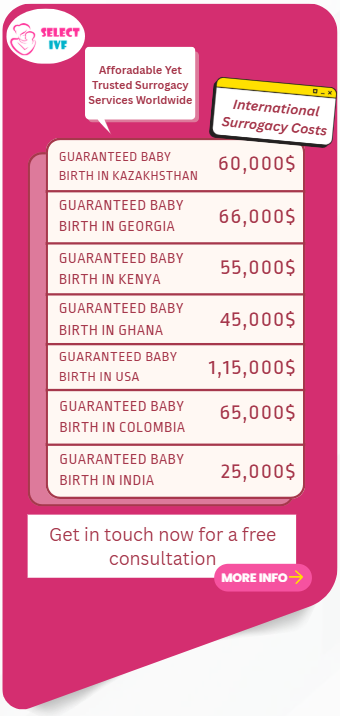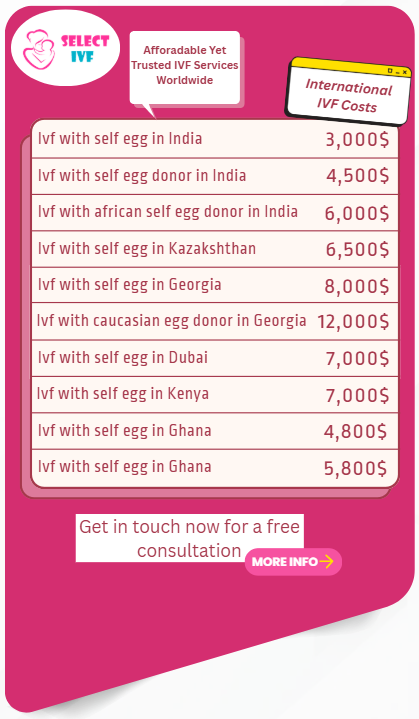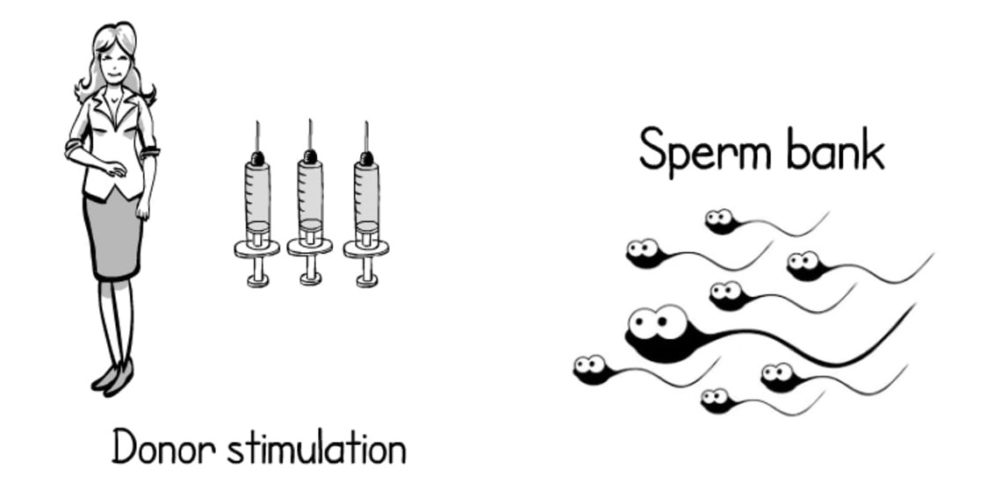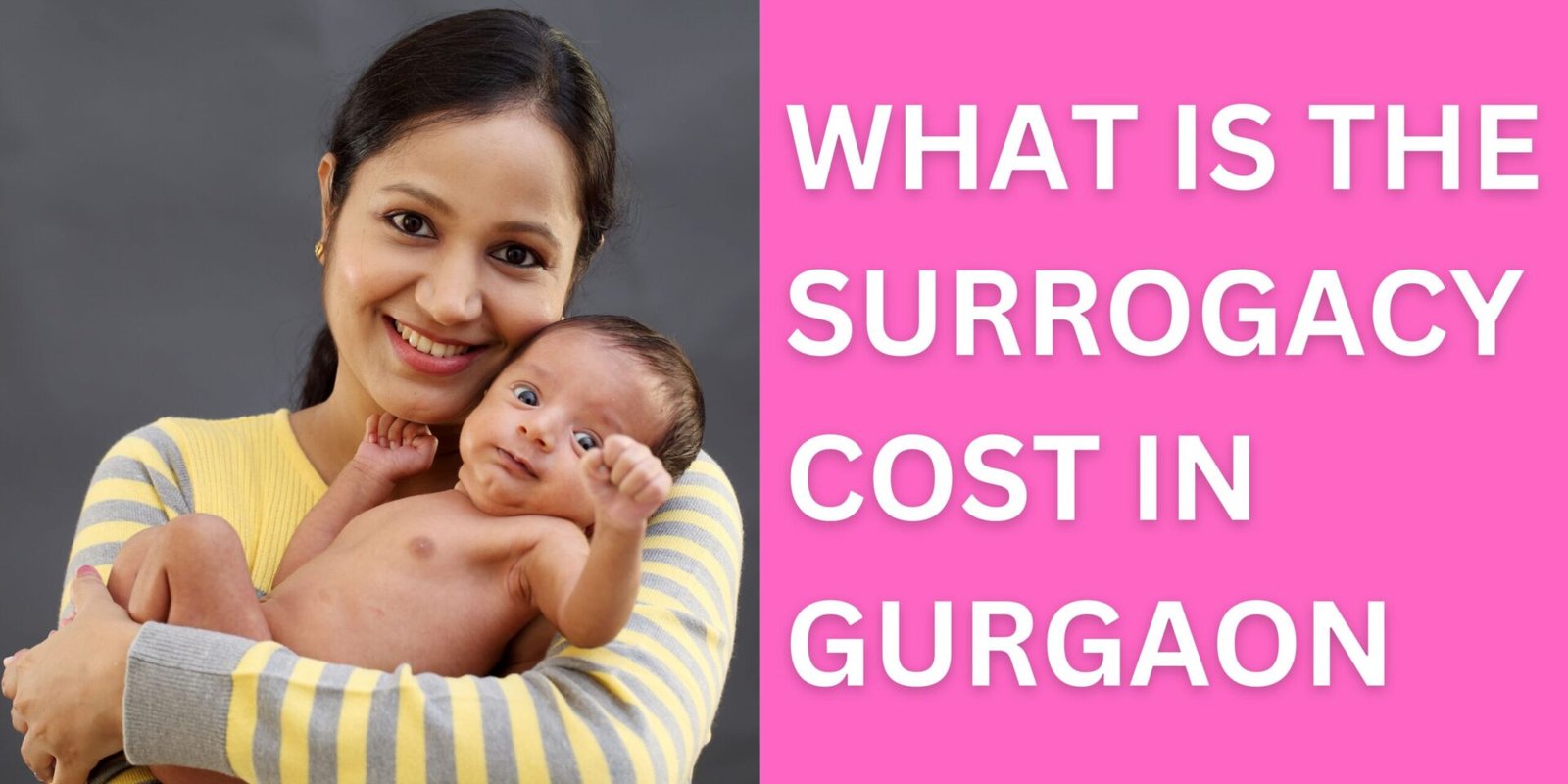IVF for Older Women
In today’s world, many women are choosing to start their families later in life. With careers, education, travel, and financial stability taking centre stage, it’s no surprise that the average age of motherhood is increasing. However, age is a significant factor in female fertility, and for older women trying to conceive, In Vitro Fertilization (IVF) has become a hope.
But what exactly are the chances of IVF success for older women? How does age affect fertility and treatment outcomes? This article explores the realities, success rates, challenges, and hope IVF offers to women in their late 30s and beyond.
First, here’s why we are best for IVF….
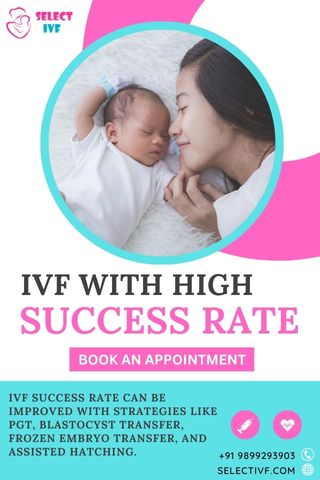
How to Choose the Best IVF Centre in India
- Availability of free consultation
- Sky-high success rate for IVF
- Affordable cost for IVF
- Availability and functionality of fertility instruments.
- Availability of other ART techniques such as IUI, ICSI, and process like egg and sperm freezing.
Understanding IVF and female fertility
Before diving into age-related outcomes, let’s briefly understand how IVF works.
What is IVF?
IVF (In Vitro Fertilization) is an assisted reproductive technology (ART) that involves:
- Stimulating the ovaries to produce multiple eggs.
- Retrieving mature eggs from the ovaries.
- Fertilizing eggs with sperm in a lab.
- Culturing embryos and transferring one or more into the woman’s uterus.
How does IVF helpful?
IVF is helpful in treating infertility of both male and female. It is 4 to 6 weeks procedure in clinic. After that, woman can carry a 9 month pregnancy and welcome a baby at their home. The following procedure describe you the IVF’s helpfulness:
The first step in IVF involves consultation. In this procedure, individual’s infertility is discussed. Each and every detail about infertility is discussed whether it’s the cost, success rate, cause of infertility and the solutions for infertility.
Next step is retrieval of egg. However, before this ovarian stimulation is required. Ovaries are stimulated to produce multiple eggs. Hormonal injections are required to perform this step. Hormonal injections trigger the ovaries so that they can produce multiple eggs for further procedures.
When eggs are developed, it is retrieved with the cather a tool used to retrieve eggs from the ovaries.
When eggs are retrieved then sperm are retrieved from the male partner on the same day. Both eggs and sperm are combined in the laboratory dish to form an embryo which is implanted into the uterus of the woman.
After embryo transfer, pregnancy test is performed to see the results of the IVF. This test is performed 12 days later right after the procedure of embryo transfer.
How much does it cost?
The cost of IVF starts from $3000 and it can range up to $6000 depending on multiple factors such as the location of the centre, success rate, IVF doctor charges, medication charges, procedure charges, screening and tests charges, additional services charges such as egg donor, sperm donor, egg freezing, embryo freezing, etc. The cost of IVF varies on patient’s condition and complexity of the case too.
How does female fertility change with age?
Female fertility starts to decline gradually after the age of 30 and more rapidly after 35. The two key reasons are:
- Decline in egg quantity: Women are born with all the eggs they’ll ever have. Over time, the egg reserve diminishes.
- Decline in egg quality: As women age, the quality of eggs also decreases, leading to a higher risk of chromosomal abnormalities.
This decline directly impacts natural conception and IVF success rates.
IVF Success Rates by Age: What do the numbers say?
Success rates for IVF are closely tied to age, particularly the age of the woman’s eggs (whether her own or from a donor).
IVF Success Rates Using Own Eggs
Here’s a general breakdown of IVF success rates by age, using a woman’s own eggs. These are average statistics and may vary depending on the clinic, the woman’s health, and other factors:
| The success rate of IVF based on age | The success rate of IVF |
| women with age between 20 to 25 years | Up to 98% |
| women with age between 25 to 35 years | Up to 95% |
| women with age between 35 to 40 years | Up to 73% |
| women with age between 40 to 45 years | 40 to 70% |
| women with age between 45 to 50 years | 35 to 60% |
IVF Success Rates with Donor Eggs
Older women often achieve higher success with donor eggs. Donor egg IVF has a success rate of:
50–70% per cycle, regardless of the recipient’s age.
Because the donor is usually a young, healthy woman, the eggs are of higher quality, which significantly boosts the chances of a healthy pregnancy.
IVF After Age 35: What you need to know?
IVF for Women Aged 35 to 37
This is a transitional phase. While many women still respond well to fertility medications, egg quality begins to decline, and the risk of miscarriage increases slightly. IVF success is still relatively good in this age group.
IVF for Women Aged 38 to 40
This age bracket is considered “advanced maternal age.” The number of viable eggs begins to drop more significantly, and embryo quality becomes a concern. Some women may need more IVF cycles to achieve pregnancy.
IVF for Women Over 40
Women over 40 face steeper fertility challenges. Even with high doses of medication, ovarian response may be poor. The risks of miscarriage, implantation failure, and chromosomal abnormalities rise.
- Some women may undergo Preimplantation Genetic Testing (PGT-A) to select chromosomally normal embryos.
- Others may consider egg or embryo donation to improve chances.
Factors that affect IVF success in older women
1. Ovarian Reserve
Ovarian reserve refers to the number and quality of eggs remaining in the ovaries. Older women usually have a lower reserve, which can be evaluated through:
- AMH (Anti-Müllerian Hormone)
- AFC (Antral Follicle Count)
- FSH (Follicle Stimulating Hormone)
A low ovarian reserve may indicate a need for donor eggs or aggressive stimulation protocols.
2. Uterine Health
The uterus generally maintains its ability to carry a pregnancy longer than the ovaries produce viable eggs. However, older women may develop conditions like fibroids, endometrial polyps, or adenomyosis, which can affect implantation.
3. General Health
Chronic conditions such as hypertension, diabetes, and thyroid problems can complicate IVF treatment and pregnancy. A full medical assessment is essential before treatment.
4. Lifestyle Factors
- Smoking, alcohol, poor diet, and lack of exercise can negatively impact IVF outcomes.
- Stress, sleep, and emotional health also play a role.
Treatment options for older women seeking IVF
1. Conventional IVF with Own Eggs
For women in their late 30s to early 40s, IVF using their own eggs may still be viable if ovarian reserve and egg quality are acceptable.
- High-dose stimulation may be required.
- Multiple cycles might be needed to retrieve good-quality embryos.
2. Mini or Mild IVF
This is a gentler protocol using lower doses of medication, suitable for women with low ovarian reserve or those who don’t respond well to conventional stimulation.
3. IVF with Donor Eggs
Women with poor egg quality or reserve often turn to donor eggs. Success rates are high and consistent across age groups because:
- Eggs come from young, fertile donors.
- Embryos are often chromosomally normal.
4. Embryo Donation
In this case, both egg and sperm are donated, and the embryo is transferred to the recipient’s uterus. This is an option for older women or couples facing combined infertility.
5. Frozen Embryo Transfer (FET)
For women who had previously frozen embryos (ideally at a younger age), FET can be a good option later in life. The age of the egg at freezing time is what matters most.
Genetic Screening: An option to improve outcomes
Older women are at a higher risk of having embryos with chromosomal abnormalities, which can result in miscarriage or failed implantation.
Preimplantation Genetic Testing (PGT-A)
PGT-A allows screening of embryos for chromosomal abnormalities before transfer. This helps:
- Select the healthiest embryo.
- Increase implantation chances.
- Reduce miscarriage risk.
Though not mandatory, it’s often recommended for women over 35.
Risks and considerations for IVF in older women
1. Lower Success Rate
The chances of success decrease significantly after age 40, especially with own eggs.
2. Higher Risk of Miscarriage
Due to chromosomal abnormalities, the risk of miscarriage increases with maternal age.
3. Pregnancy Complications
Older women may face higher risks of:
- Gestational diabetes
- Preeclampsia
- Preterm birth
- C-section delivery
4. Emotional and Financial Stress
IVF can be emotionally draining and financially expensive, especially if multiple cycles are needed.
How to improve IVF success for older women?
While age is a limiting factor, there are ways to optimize chances:
1. Early Evaluation
Consult a fertility specialist early. Tests like AMH and AFC can help plan the right time and treatment.
2. Healthy Lifestyle
- Eat a balanced diet.
- Exercise regularly.
- Avoid smoking and alcohol.
- Manage stress through yoga, meditation, or counselling.
3. Consider Egg Freezing Early
If motherhood is postponed for any reason, freezing eggs at a younger age (under 35) preserves fertility potential.
4. Work With Experienced Clinics
Choose a fertility clinic with experience in treating older women and offering advanced options like PGT-A and donor programs.
Emotional aspects of IVF in older women
IVF is more than just a medical journey. The emotional toll, especially for older women who may have faced years of trying to conceive, can be intense.
Common Emotions Include:
- Hope
- Anxiety
- Disappointment
- Joy
- Grief
Consider talking to:
- Fertility counselors
- Support groups
- Online communities
Emotional support plays a critical role in coping with the IVF process.
What should you consider when selecting the top IVF clinic?
We understand how difficult it becomes to select the best option for your infertility treatment but do not get tense, as one of the best options is going to be suggested to you where the patient collaborates with highly experienced and qualified doctors. The patient will find it comfortable as the staff will always stand by them, away from all the worries that come to their mind. We offer all types of infertility treatment, so contact us today! To start, consider the following factors while selecting a location:
i. The patient-focused assistance of the centre
ii. Professionals with extensive education and experience
iii. Infrastructure that is well-built for maximum comfort and happiness
iv. The entire medical staff treats you with respect
v. Assists you throughout the entire process from the beginning
vi. Offers transparent fees and processes
You have the option of choosing IVF for all of these! So, reach out to us at +91- 9899293903 | Email ID: info@www.selectivf.com
Why pick Select IVF for IVF?
Several numbers of infertile couples trusted the select IVF for their bright future. We care for every patient who has issues of infertility. We understand the phase of infertility, and that’s why we want to assist you in your dream of achieving parenthood. The prices of IVF treatment are reasonable at our centre, We ensure the highest success rates, we keep transparency and ensure personalised care and support to our patients. Get the treatment from our clinic and make your life stress-free by hearing the giggling of your newborn.
Here’s why Select IVF is best for IVF treatment:
- The high success rate of IVF and other infertility treatments
- Several infertility treatments for different infertility issues
- Use of cutting-edge technologies
- Equipped with highly skilled and educated doctors
- Affordable prices for IVF and other infertility treatments
- Ensures utmost comfort and support during the procedure
Conclusion
While IVF success decreases with age, many women in their late 30s and 40s have realized their dream of motherhood through IVF—whether with their own eggs or with donor assistance. Modern technology, personalized care, and lifestyle modifications have made it increasingly possible.
If you are an older woman considering IVF, the most important step is to get evaluated early, stay informed, and work with a fertility expert who understands your individual needs.
Motherhood may come later, but with the right approach, it is absolutely possible.
FAQs (Frequently Asked Questions)
Is IVF safe for women over 40?
Generally, yes if you’re in good health. Your doctor will assess your fitness for pregnancy.
What is the age limit for IVF?
There is no fixed legal age limit in many countries, but most clinics recommend IVF up to age 50, especially with donor eggs.
Should I freeze my eggs if I’m not ready yet?
If you’re under 35 and want to delay motherhood, egg freezing is a good option to preserve fertility.
Does IVF guarantee pregnancy?
No. IVF increases chances, but success isn’t guaranteed. Age, egg quality, and health all influence outcomes.
Read Also:

